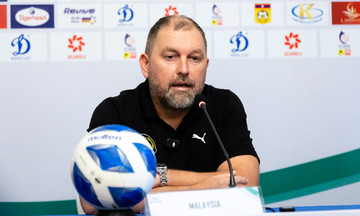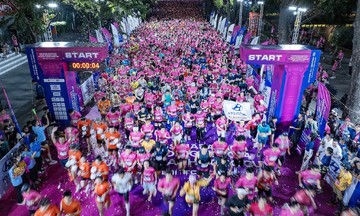According to Dr. Bui Phu Truong, head of the VnExpress Marathon medical team, muscles store glycogen as fuel for long-distance running. Glycogen depletion is the main cause of "hitting the wall" (bonking), reduced speed, and an increased risk of exhaustion, especially in hot and humid coastal weather. Therefore, runners need to start with full glycogen stores and stable blood sugar levels.
Specifically, in the three days before the race, runners should gradually increase their carbohydrate intake while prioritizing low-fiber, low-fat, and easily digestible foods to store glycogen without causing bloating. They can consume white rice, vermicelli noodles, pho broth, pasta, and bread with lean chicken, fish, eggs, or tofu. Foods high in insoluble fiber, whole grains, and fried foods should be limited.
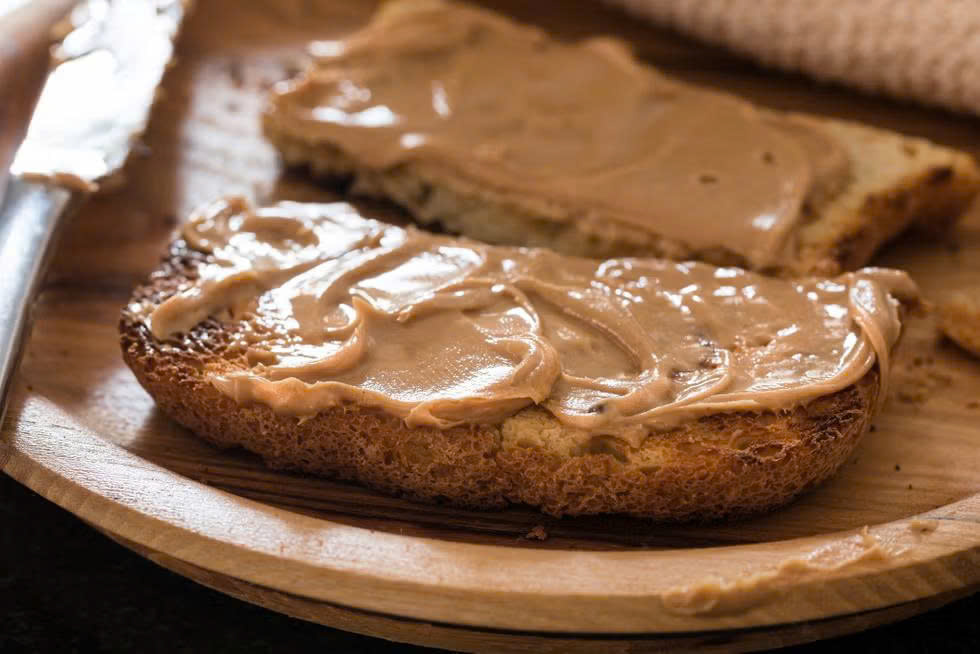 |
Carbs from bread are a common source of nutrition for runners. Photo: Runner's World |
Carbs from bread are a common source of nutrition for runners. Photo: Runner's World
Depending on body type and distance, carbohydrate intake can range from 7-12 grams per kilogram of body weight per day. Reducing fiber intake 24-48 hours before the race is also recommended to limit digestive issues during endurance activities. "At the same time, runners need to ensure adequate water and electrolyte intake, avoid losing more than 2% of their body weight due to sweat, and use sodium-containing solutions to support balance," Dr. Truong advised.
For dinner the night before the race, 60-70% of energy should come from carbohydrates, accompanied by moderate lean protein and low fat. Runners should avoid trying new foods. "Stick to the familiar menu used during training to avoid adverse digestive reactions," he shared.
1-4 hours before the race, runners can consume 1-4 grams of carbohydrates per kilogram of body weight (for example, a 60 kg runner needs 60-240 grams of carbohydrates). They can have bread, pasta, rice cakes with bananas or low-fat yogurt, and drink 300-600 ml of water or electrolyte solution 1-2 hours before entering the starting area.
Throughout the race, especially for half marathons and full marathons, it's essential to maintain a carbohydrate intake of 30-60 grams per hour from gels or sports drinks with a 6-8% concentration. Dividing intake and drinking according to thirst will help avoid bloating.
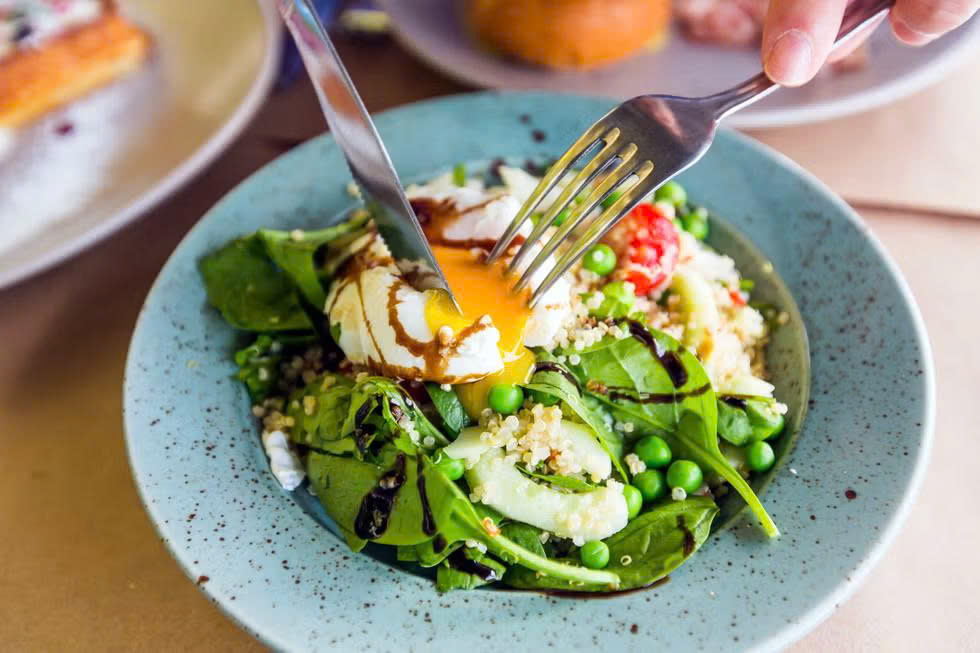 |
Moderate fiber intake is recommended to avoid digestive upset during competition. Photo: Runner's World |
Moderate fiber intake is recommended to avoid digestive upset during competition. Photo: Runner's World
Dr. Truong also noted that while running, the body prioritizes blood flow to the skin for heat dissipation, which can lead to reduced blood flow to the intestines. This can cause nausea, stomach pain, or diarrhea if runners eat or drink too quickly or consume the wrong foods. To mitigate this risk, runners can adopt a short-term low-FODMAP diet, reducing hard-to-digest fermentable carbohydrates. These are often the culprits behind bloating, gas, stomach pain, or diarrhea, especially during long-distance runs. He recommends "training the stomach" during long runs with the same gels and drinks planned for race day.
The 42km VnExpress Marathon Nha Trang starts at 2:30 a.m. Runners can have an early dinner (before 8 p.m.) rich in carbohydrates, followed by a light 200-300 kcal snack 2-3 hours before the start. During the race, they should carry familiar gels and salt, especially for uphill sections, during peak sun hours, and to manage pace in high humidity.
At the VnExpress Marathon Libera Nha Trang expo, the Long Chau booth offers nutritional support products, gels, and salts at discounted prices exclusively for runners. After receiving their race kits, runners can visit the booth, make purchases, and have a chance to win prizes by participating in fitness games.
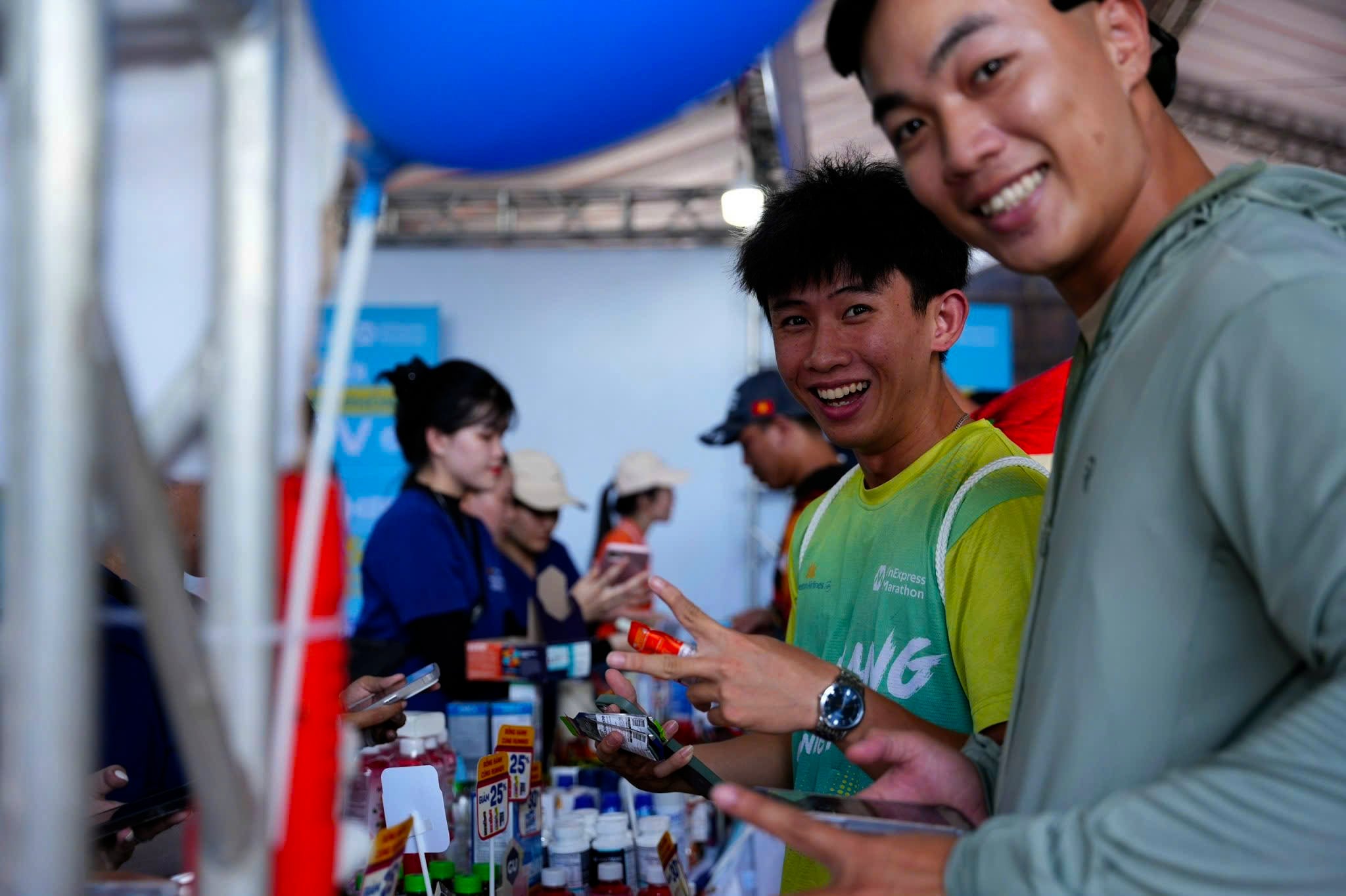 |
Runners purchase gels and salts at the Long Chau booth. Photo: VM |
Runners purchase gels and salts at the Long Chau booth. Photo: VM
After finishing the race, within two hours, prioritize consuming carbohydrates and protein in a 3-4:1 ratio with sodium to effectively replenish glycogen and fluids. For instance, if consuming 60g of carbohydrates, include about 15-20g of protein. Carbs help replenish glycogen in muscles, which are depleted during running, while protein supports muscle repair and rebuilding. This combination promotes faster recovery.
According to Dr. Truong, Nha Trang, the location of the 4th VnExpress Marathon, offers a diverse cuisine. Runners can enjoy local specialties for pre-race nutrition with dishes like fish noodle soup, seafood noodle soup (reducing raw vegetables, onions, and garlic), egg sandwiches, white rice with chicken breast or grilled tuna with minimal oil, chicken porridge, or fish porridge. Avoid raw seafood, salads, fried or excessively spicy dishes close to race day to minimize the risk of intestinal irritation in hot and humid weather.
Lan Anh
| The VnExpress Marathon Libera Nha Trang 2025 brought together 13,000 runners. The race took place on the morning of 24/8, along the coastal route across Tran Phu Bridge, Tram Huong Tower, and Luong Son Pass. The event concluded the VnExpress Marathon's summer series, catering to runners who enjoy combining travel and sports. |
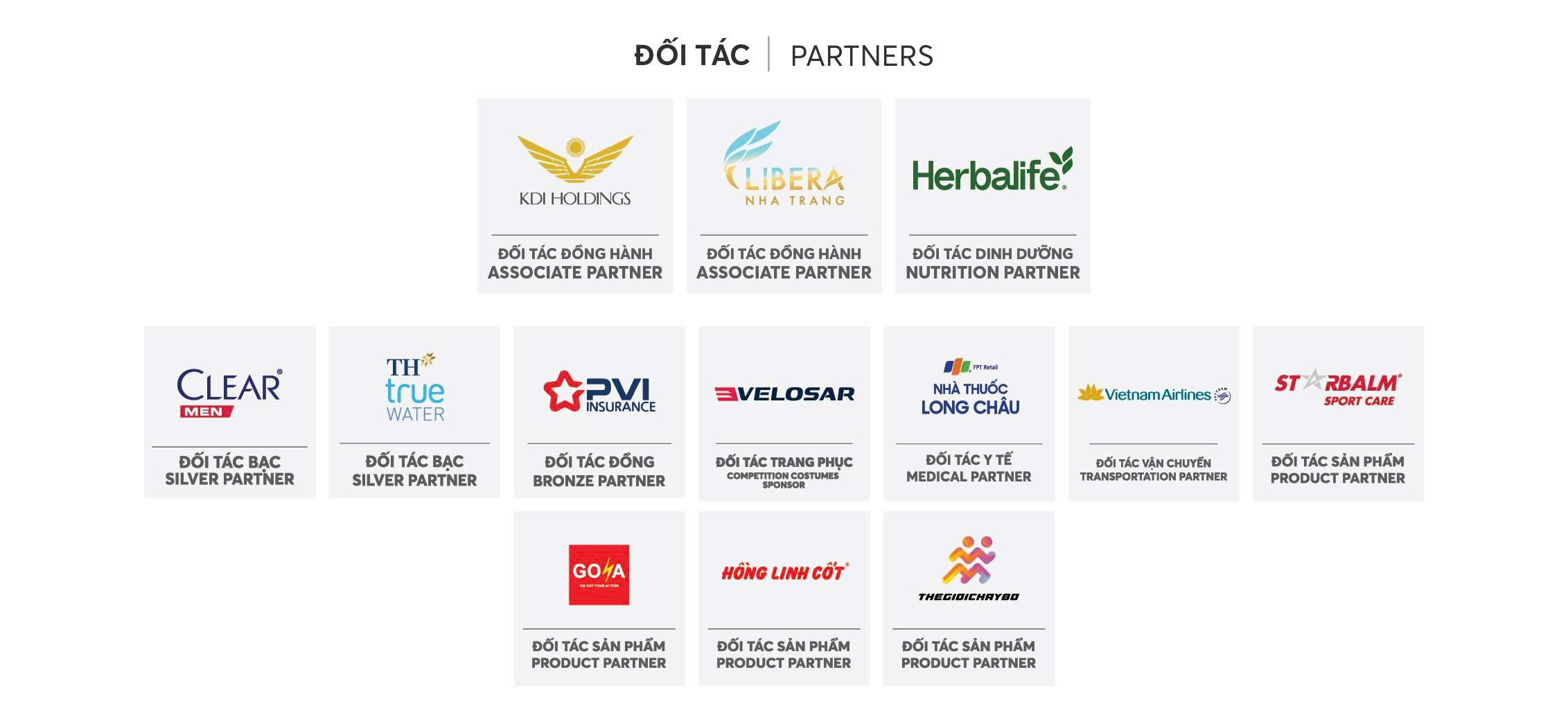 |









